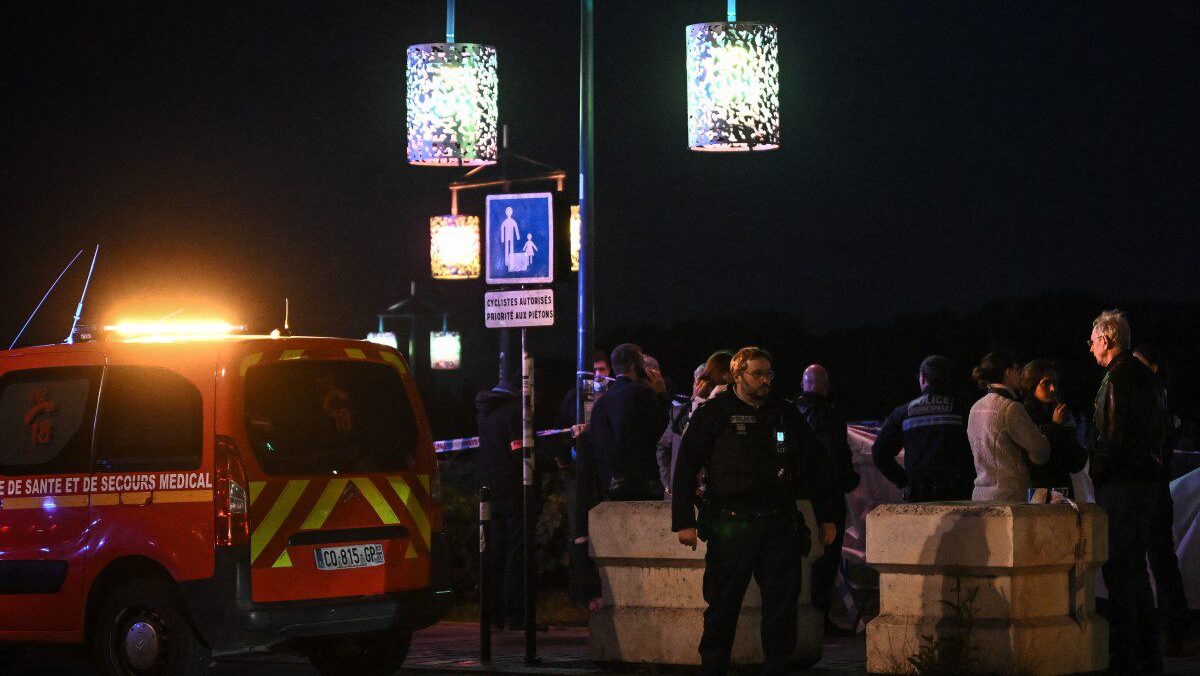
Photo: Philippe Lopez / AFP
The last few weeks of Ramadan and the feast of Eid-el-Fitr have been accompanied in France by an upsurge in violence and intimidation. Its targets are people accused by members of the Muslim community of not respecting the principles of the Quran, such as its dietary or dress restrictions. In Bordeaux, a man accused of drinking in defiance of Islamic rules was attacked and killed with a knife.
In schools, there have been a number of recent incidents of violence, insults and harassment against children or adults who have been targeted and criticised for not respecting the rules of Islam.
In Montpellier, a 14-year-old schoolgirl, Samara, was taken to hospital in a coma after being beaten up by classmates who violently insulted her. According to her mother, the girl was called a “whore,” a “kufar” (non-believer) and a “miscreant” because she dressed in European style and was ordered to “put on the veil.” . Last year, a pupil at the secondary school Samara attends called for her to be raped. Samara belongs to a family descended from Harkis—Muslims who remained loyal to France during the Algerian war and were repatriated to France in 1962 to avoid being massacred by independence fighters.
Tensions have become heightened during Ramadan, which can become a competition between some of the faithful to outdo each other in terms of respect for Quranic prescriptions. In Achenheim, Alsace, a 13-year-old girl was beaten up by four Muslim minors—this time accusing her of not observing the Ramadan fast, as she got off a bus on the way to their school. Céline Imart, number two on the Les Républicains list for the European elections, mentioned another incident where a teacher at a secondary school near her home was prevented from drinking a glass of water in class by a pupil on the grounds that it was Ramadan. Fortunately this did not degenerate into violence, after the female teacher complied for fear of the consequences.
In Bordeaux, an altercation over similar issues escalated, resulting in one death and one serious injury. On the evening of Wednesday, April 10th, the feast of Eid, an individual of North African origin wearing a djellaba (an ankle-length, loose-fitting garment) attacked two men of Algerian origin. One died from throat wounds, while the other remains in hospital in a serious condition. The assailant was killed by police as he wandered near the scene of the crime, knife in hand. According to information obtained by Le Figaro, the killer attacked the two men, who had North African features, accusing them of drinking beer on the Muslim feast day of Eid.
Such acts of violence also illustrate the habitual French media and political strategy in response: one of denial. In Montpellier, the lawyer for one of the suspects in the attack on young Samara said that religion was “not at all the subject of the case,” but that it was “simply” a dispute that had its origins in harassment on social media, which is all very standard. In contrast, Samara’s mother testified formally to the religious dimension of the invective repeatedly directed at her child prior to her daughter’s hospitalisation.
Following the Bordeaux murder, the press emphasised the absence of a “terrorist motive” in the stabbing. However, in the absence of a “terrorist motive,” it would appear from the initial findings of the investigation that the attacker acted by accusing North African-looking men of drinking alcohol in defiance of Islam. But no “terrorist remarks” were made. In the aftermath of the attack, BFM TV modestly—or hypocritically—reported “a dispute linked to alcohol.”
#Bordeaux : « la piste terroriste semble désormais totalement écartée » selon les médias, c'est « un différend lié à la consommation d’alcool (…) en ce dernier jour de ramadan »
— Gilbert Collard (@GilbertCollard) April 11, 2024
Tout va bien, ce n'est pas du terrorisme, c'est juste de la charia ! Ouf !https://t.co/Uwzb9UHbBC
Jordan Bardella, head of the Rassemblement National list for the European elections, denounced “individuals who want the application of Sharia law,” while Les Républicains senator Valérie Boyer called for the “details” of repeated knife attacks across France to be revealed honestly .
The assailant was shot dead by a member of the national police force. The municipal police in the Ecologist-Party-run city of Bordeaux, deprived of lethal weapons at the request of Mayor Pierre Hurmic, were reportedly unable to incapacitate the murderer. The murder on April 10th thus reignited the controversy surrounding this policy, which was contested at local level. For the time being, the mayor’s response has been to open a crisis centre at the ‘Maison écocitoyenne’ in Bordeaux.
